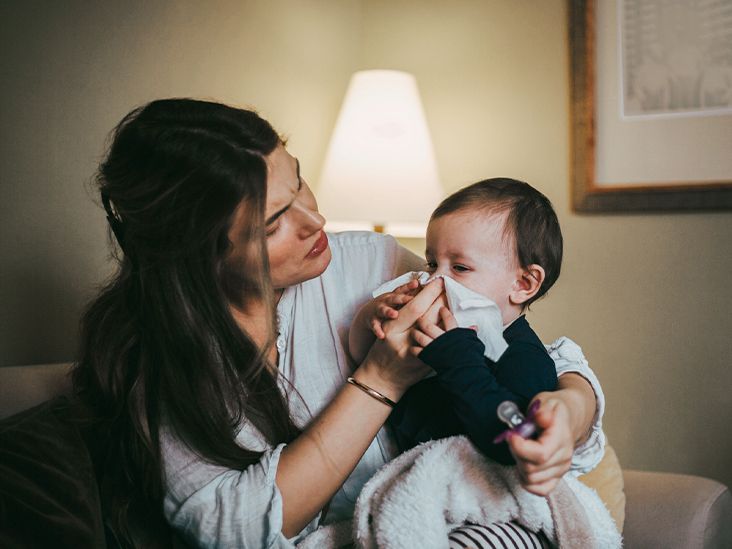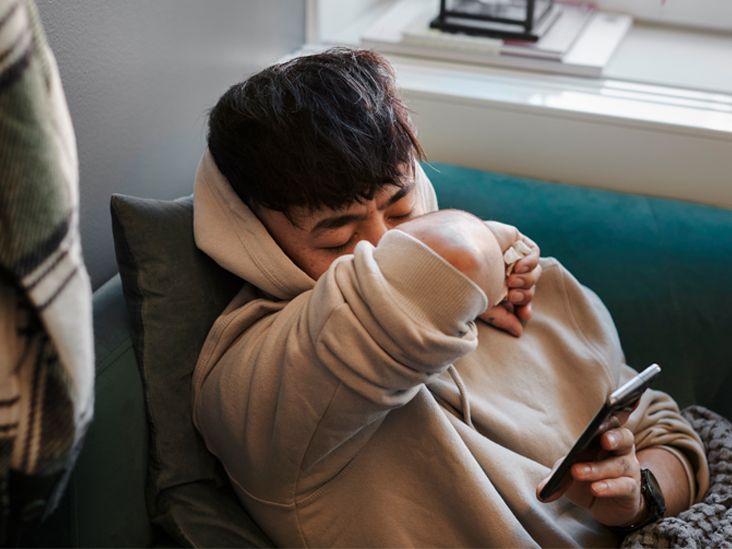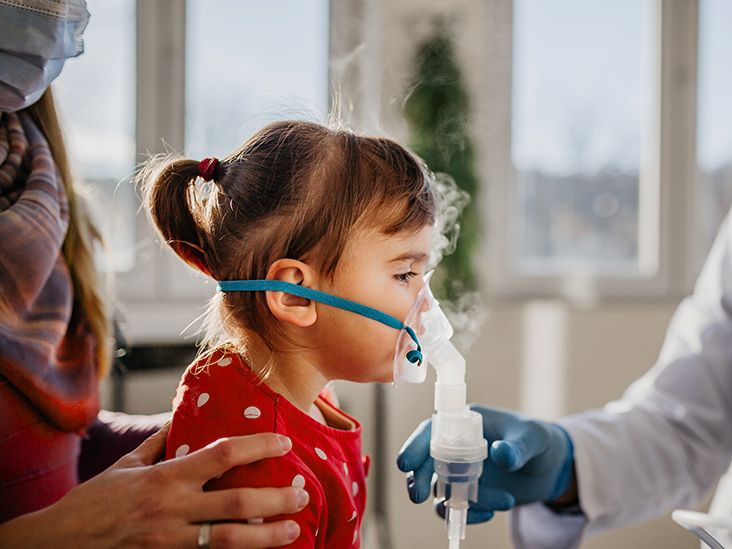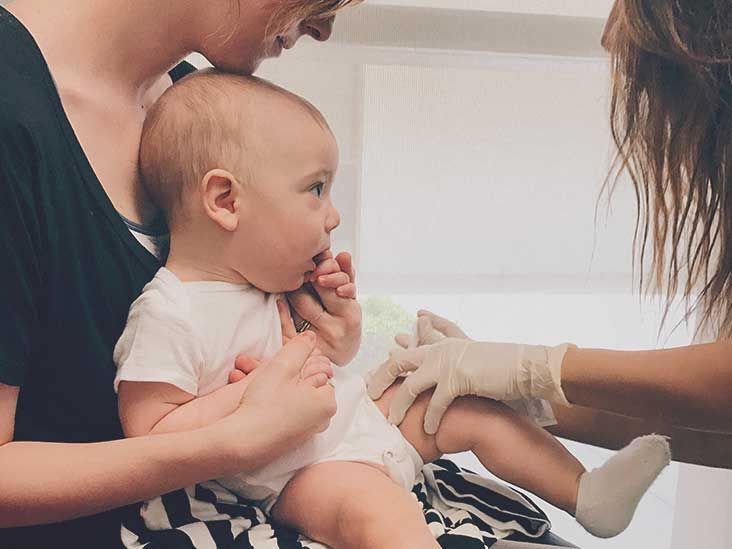Being fully vaccinated against COVID-19 means being up-to-date on vaccines and boosters. Being fully vaccinated can help prevent hospitalization and death.

“Fully vaccinated,” at least in the context of COVID-19, means you have received all the vaccine doses recommended for someone in your demographic.
Getting all your vaccine doses gives you the most up-to-date protection against the SARS-CoV-2 virus.
Vaccination recommendations vary by country and within the United States.
The U.S. government considers you
Here’s a quick primer to help you determine whether you and your family are fully vaccinated.
COVID-19 vaccine recommendations vary by age, vaccine type, and health status in the United States. You can get one of three vaccines:
Updated vaccine recommendations for 2025
The
The American Academy of Pediatrics (AAP) recommends vaccination for every child 6 months or older, and the American College of Obstetricians and Gynecologists (ACOG) recommends vaccination for all pregnant people.
Primary series
The
You typically have to wait
Booster dose
Once you’ve finished your primary series, you may be eligible for a 2024–2025 booster shot from Pfizer, Moderna, or Novavax. These boosters have been updated to target the lineage of the Omicron variant.
The three kinds of booster shots include:
- 2024–2025 Moderna COVID-19 Vaccine: Anyone 6 months and older
- 2024–2025 Pfizer-BioNTech COVID-19 Vaccine: Anyone 6 months and older
- 2024–2025 Novavax COVID-19 Vaccine: Anyone 12 years and older
You are considered fully vaccinated if you’ve received the most recent booster.
Your booster dose doesn’t need to match your primary vaccine. In other words, you can get a Novavax booster if you received Pfizer or Moderna vaccines for your previous doses, or a Moderna booster if you received Pfizer vaccines for your primary doses.
What about immunocompromised people?
Being immunocompromised means you have a weaker immune system than most people. This could happen due to a health condition or as a side effect of certain medications. Being immunocompromised not only puts you at greater risk of disease, but it may also lower your body’s response to vaccines.
If you’re moderately or severely immunocompromised, a doctor may recommend an
Still, if you’re over 12, the waiting period between your last primary dose and your booster shot is 2 months, and you only need one dose of the updated booster.
The
| 2024–2025 Pfizer-BioNTech COVID-19 Vaccine (mRNA vaccines): Pfizer (6 months to 11 years old) and COMIRNATY (12 years old and older) 2024–2025 Vaccinations | Moderna (mRNA vaccines): Moderna (6 months to 11 years old) and SPIKEVAX (12 years old and older) 2024–2025 Vaccinations | Novavax (protein subunit vaccine) 2024-2025 Vaccinations | |
|---|---|---|---|
| Recommended ages | 6 months old and older | 6 months old and older | 12 years old and older |
| Primary series (For people have not received a COVID vaccine) | 6 months to 4 years: • dose 1 – initial dose • dose 2 at least 3–8 weeks after dose 1 • dose 3 at least 8 weeks after dose 2 5 years and older: • dose 1 – initial dose • dose 2 at least 8 weeks after dose 1 | 6 months to 4 years: • dose 1 now • dose 2 administered 4–8 weeks after dose 1 5 years to 64 years: • dose 1 now Over 65 years old: • dose 1 now • dose 2 at least 6 months after dose 1 | 12 years old and older: • dose 1 – initial dose • dose 2 at least 3–8 weeks after dose 1 |
| Booster dose (For people who have completed an initial series of the COVID vaccine) | 6 months to 11 years: • booster dose 1 given at least 8 weeks after any COVID vaccine (except a 2024-2025 vaccine) Over 65 years old: • booster dose 1 given at least 8 weeks after any COVID vaccine (except a 2024-2025 vaccine) • dose 2 given at 6 months after dose 1 | 6 months to 64 years: • booster dose given at least 8 weeks after any COVID vaccine (except a 2024-2025 vaccine) Over 65 years old: • booster dose given at least 8 weeks after any COVID vaccine (except a 2024-2025 vaccine) • dose 2 given at 6 months after dose 1 | 12 years old and older: • booster dose given at least 8 weeks after any COVID vaccine (except a 2024-2025 vaccine) |
The CDC recommends a different vaccine schedule if you are immunocompromised. If you have partially completed your initial vaccine series, you may need to complete it before receiving a booster dose.
Do I need a COVID-19 vaccine to travel internationally?
As the emergency phase of the COVID-19 pandemic has ended, so have the requirements for vaccination or negative COVID tests previously required for international travel.
The many benefits of receiving all of your COVID-19 vaccine doses include:
Improved protection from the most common COVID-19 strains
The original vaccines offer general protection against COVID-19. Updated booster shots refresh these broad defenses and also provide targeted protection against recently circulating strains.
According to 2023 research in Brazilian hospitals during four waves of subvariant COVID-19 strains, people receiving COVID-19 boosters had a lower risk of invasive ventilation requirements and in-hospital death than unvaccinated or not fully vaccinated patients. The researchers found this was true in all age groups.
Lower odds of developing long COVID
A
After the first dose, participants’ risk of long COVID was 86%. After the second dose, this risk dropped to 25%. After the third dose, their risk dropped to 16%.
Other factors most likely come into play, for instance, the unvaccinated reference group was made up entirely of females, and the researchers found that males appeared to have an overall lower risk of developing long COVID.
Even so, their findings suggest that each additional vaccine dose offers further protection, though experts don’t know how the bivalent booster will affect long COVID risk.
Protecting your loved ones from infection
Vaccination not only benefits you but also helps protect the people around you.
COVID-19 vaccinations restrict how much the SARS-CoV-2 virus can replicate in your body. If your body has less of the virus, it is less likely to spread to co-workers, friends, or family.
FYIA
2022 studyTrusted Source considered workers who had already completed a primary Pfizer series and were scheduled to get the original Pfizer booster.
Just 5 weeks after they received the booster, SARS-CoV-2 transmission among them decreased by 93%.
In the United States, being fully vaccinated refers to having two primary doses and updated boosters.
Vaccines help protect you, your loved ones, and members of your community from severe COVID-19 symptoms. They also lower your chances of experiencing long-term symptoms and damage from the virus.
You can find COVID-19 vaccine providers near you at Vaccines.gov.
Emily Swaim is a freelance health writer and editor who specializes in psychology. She has a BA in English from Kenyon College and an MFA in writing from California College of the Arts. In 2021, she received her Board of Editors in Life Sciences (BELS) certification. You can find more of her work on GoodTherapy, Verywell, Investopedia, Vox, and Insider. Find her on Twitter and LinkedIn.










